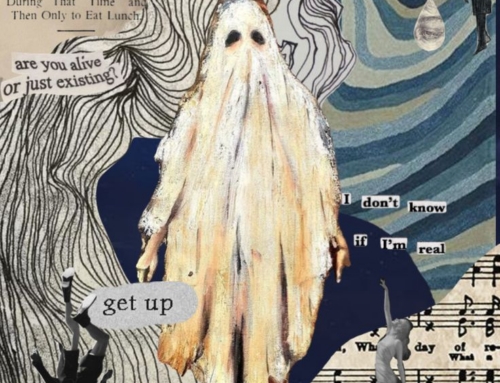There’s a lot of talk around the Amazon synod concerning paganism. The weird tree planting ceremony in the Vatican last week prompted conversations expressing everything from curiosity and concern to panic and outrage.
It’s worth explaining the relationship of paganism to the Catholic faith because the links with paganism are used to attack Catholicism from three different fronts: Fundamentalism, Liberal Protestantism and Secular Atheism.
This long article over archived over at the Patheos blog explains the three attacks and the proper Catholic response and this article comments on the tree planting ceremony while this article explains the difference between Paganism, Pantheism and Polytheism.
What is paganism and what’s the problem with paganism?
Paganism is an umbrella term for a certain approach to religion. Paganism is any religion or belief system which has nothing to do with morality, but instead is a mechanism to appease or please the gods and goddesses in order to get something from them. The devotee may want the gods to give them wealth, health and happiness in this life or peace and joy in the afterlife. They may want the gods to curse their enemies or protect them from a curse. They may want the gods to give them success in the hunt, victory in battle or magical power.
It doesn’t much matter what they are asking for or even who they are asking, but the general definition of paganism is a person engaged in a religious system, philosophy or way of life that seeks benefits from a greater power.
In the primitive religions of indigenous people the paganism is quite obvious. They sacrifice a human or an animal to the god so the god will give them what they want. Or the shaman performs certain magical ceremonies to get in touch with the gods to get from the gods what they need.
A whole elaborate ceremonial develops along with a complex mythology about the gods and goddesses.
Note that none of this has anything to do with morality. It was the Hebrew God who introduced morality into the religious equation.
When you push paganism, however, it’s not hard to see that there are plenty of modern forms of paganism not only in the jungle of the Amazon, but also in the jungle of Manhattan. Modern, technologically literate people also behave in pagan ways. Some of it is obvious in our society. Much of New Age belief and practice is pagan. People engage in various religious rituals and ceremonies in order to get what they want. They may not burn incense before an idol to Ganesh the elephant god, but they light a candle, chant their mantra and channel their “positive energies” to become “fuller and more abundant human beings.”
You get the idea.
Furthermore, there is a kind of embedded, unconscious paganism in our society. This is practiced by people of no religion, but who still go through ritualistic ceremonies hoping to please their gods. Their gods are not idols of wood and stone, but money. People with a gambling addiction are behaving in a repeated, ritualistic action hoping to win the blessing of “Fate” or “Lady Luck”. Its a debased and shallow form of paganism, but it is paganistic method at its foundation.
Now here’s where I’m going to ruffle some feathers: Christian religious practice can also function as paganism. If a Christian goes through certain rituals of behavior only because they think it will please God and God will therefore bless and protect them they are behaving in a somewhat pagan fashion. If their prayers are only asking for things from God and they think if they say more prayers and do more religious good works God will be happy with them and answer their prayers then you can see that their practice of Christianity is essentially pagan.
This is tricky because, on the one hand, we are supposed to ask God for good things. Jesus taught us to say, “Give us this day our daily bread” and he praises the persistent widow in his parable. However, we ask God for what we need within his perfect will. We’re not bargaining with God–exchanging moral behavior and lots of pious actions so he will give us what we want. We offer our requests and ask for him to answer our prayers as a way of conforming our will to his…the ultimate aim being to co-operate with God’s action in the world.
This is the real problem with paganism, and this is where the demons come in. People are rightly worried that paganism is a form of devil worship. It can be so explicitly, but in the more subtle forms of paganism it is also true because if anyone is worshipping a false god, that being must be part of Satan’s malevolent family–no matter how nicely dressed or respectably attired they are.
The deeper problem with paganism is that it subverts the essence of true Christianity. Why? Because at the heart of paganism is a person saying to God, “I want you to do my will. I’ll do anything you want to get you to do what I want. Do you want human sacrifice? OK. Do you want me to go to war? No problem. Do you want me to sacrifice a chicken? A bull? My little girl? Whatever. But at the end I want you to do my will.”
Christianity is never about getting God to do our will. It is always about us doing His will.
The essence of the Christian faith is seen at the Annunciation and the Garden of Gethsemane. There the Blessed Mother says to God, “Let it be to me according to your will.” In the Garden of Agony Our Lord says, “Nevertheless, not my will, but Thy will be done.”
Don’t forget this month is my “Pass the Saturno Membership Drive”. Go here to learn how to be a Donor Subscriber–support the blog and get lots of extra content, benefits and special offers. If you can’t make a monthly commitment and you appreciate the blog and podcasts maybe make a donation using the “Donate” button on the right sidebar. Thanks!







I have just finished reading orthadoxy by Cesterton and on the last page I came upon an idea about standing on my head in order to see clearly and with joy. Is that where you got your name for your blog?
I seem to be in my second childhood and relish mystery and angels and truth and joy and kindness and generosity and encouraging people and looking for God, Jesus, in everybody I meet.It makes me joyful to be positive and hopeful.
Nancy
Yes, there and he also talks about it in his little book on St Francis of Assisi